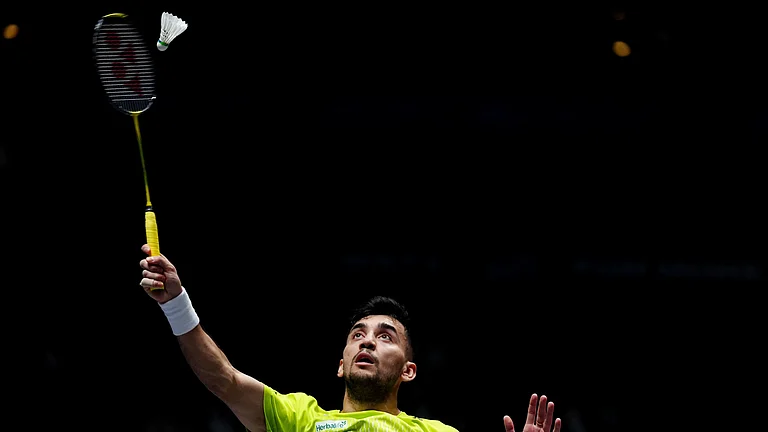After the Congress party defeated the Bharatiya Janata Party (BJP) in Karnataka assembly elections, senior state party leader Siddaramaiah termed the victory a "stepping-stone" for the national elections next year.
Talking to mediapersons after the results, Siddaramaiah, top contender to be the chief minister again, answered if the 2023 assembly results in the southern state would serve as a semi-final for the 2024 Lok Sabha election. “It is a stepping-stone for the upcoming Lok Sabha elections,” said a jubilant Siddaramaiah.
The Congress party's impressive win in Karnataka has definitely raised the spirts of the party, its cadre as well as state and national leadership. However, a big question that still looms is whether its performance in this election could translate into gains at the national level as we approach 2024 Lok Sabha polls. The simple answer is that it is too early to predict that or perhaps even futile at this stage in ever-changing political circumstances in the country. The road to 2024 is long and fraught with even more difficult challenges for the grand old party.
But credit where it is due.
Backed by a strong state leadership, charismatic leaders such as Siddaramaiah and D K Shivakumar, a focused campaign addressing livelihood and social security of citizens as well as a ‘localised’ and innovative narrative targeting corruption and misgovernance of the BJP government, the Congress handsomely trumped the saffron party. This despite the fact that the BJP went out all guns blazing and had as usual deployed the campaign services of their top two national faces, Prime Minister Narendra Modi and Union Home Minister Amit Shah. During the campaign, Shah regularly spoke about upsetting the traditional caste calculations in the state through the creation of the “labharti” or the beneficiary voter under the BJP’s rule of a ‘double-engine sarkar’.
It is not surprising that the Congress is now trying to stick the defeat on Modi. Senior Congress leader Jairam Ramesh said, “The results firm up in Karnataka it is now certain that the Congress has won and the PM has lost. The BJP had made its election campaign a referendum on the PM and on the state getting his 'ashirwaad'. That has been decisively rejected!”
The Karnataka win also reflects well on Mallikarjun Kharge, the Congress president who was elevated to the post after a much-publicized election. Kharge, a Dalit, hails from Karnataka and the victory in his home state is sure to boost his image. For now, under his leadership he has delivered a major state to the party. While reliable data is yet to be published, some exit polls indicated a sharp rise in the Dalit votes received by the Congress in this election.
Rahul Gandhi, former Congress president and their most popular face in the country, attributed the victory to the defeat of crony capitalism at the hands of the poor. He said, “In Karnataka election, on one side we had the takat (strength) of crony capitalism. On the other side, we had we have the shakti (power)of the poor junta. And the shakti has defeated the takat. And this will happen in every state.”
While ground reports suggest that a localised narrative along with the charisma of local leadership, especially Siddaramaiah, provided the Congress an edge against the untested Basavaraj Bommai, the party was quick to reinforce the contribution of the Gandhi family. According to information released by Congress through sources, Priyanka Gandhi Vadra addressed 34 rallies, roadshows and nukkad sabhas in Karnataka 2023. The Congress won almost 70 per cent of these seats, said sources. Rahul Gandhi’s Bharat Jodo Yatra travelled through 38 Assembly seats in Karnataka. Congress won 75 per cent of these seats, added the sources.
Indeed, the Congress would like to see the Karnataka win as a stepping stone for its revival at the national level. However, it faces several challenges. First, given that the Congress has itself publicised and demonstrated that it fought the Karnataka election on ‘local issues’, as Jairam Ramesh put it today, it would mean that a similar strategy or narrative may not work in other states.
In Karnataka, despite losing in 2018, the Congress had a larger vote percentage than the BJP at 38.14 per cent against 36.5 per cent. However, in the Lok Sabha election in 2019, a year later there was no contest. The BJP not only won 25 out of 27 seats but also maintained an average vote percentage of more than 51 per cent. The Congress trailed it by almost 20 per cent despite being in an alliance with the JDS.
Two, if indeed the Congress is relying on ‘local narratives’, it must be prepared to address local challenges specific to the states going to the polls before the 2024 Lok Sabha — Madhya Pradesh, Chhattisgarh and Rajasthan. In Rajasthan, the party would have to address the potentially-damaging bickering between Chief Minister Ashok Gehlot and Sachin Pilot. In Karnataka, the party did not allow the differences between D.K Shivakumar and Siddaramaiah, both contenders for the CM post, to flare out. Would it be able to ensure a united front in Rajasthan? Even as the Karnataka election results are being declared, Pilot is on a 125-km Ajmer to Jaipur ‘Jan Sangarsh Yatra’ against his own government. In Madhya Pradesh, the Congress faces the difficult task of dethroning Shivraj Singh Chouhan, who remains popular despite allegations of scams and making several contentious decisions.
The Congress would also have to hold fort in the sensitive state of Chhattisgarh, where it has a formidable chief minister in Bhupesh Bhagel but also several regional contenders for the top post. MP and Rajasthan fall in what we describe as the Hindi heartland, where the BJP-RSS Hindutva nationalism narrative often receives more currency, despite the Congress being a strong challenger for power for many decades in both states. Each state brings its peculiar complications and caste and community calculations. Unlike in Karnataka, the party is also cash-strapped in several others states and lacks a proper organization in key states like Uttar Pradesh and Bihar, where it depends on local backward caste-based parties to keep the BJP at bay.
Third, as recent election trends have indicated, voters vote differently when it comes to national and state elections. Since 2014, voters at the national level have favoured the Narendra Modi-led BJP even if the party has received losses at the state level on many instances, including 2018 in Madhya Pradesh, Rajasthan and Chhattisgarh, and its failure to defeat the Arvind Kejriwal-led AAP in Delhi. Another example is West Bengal, where though the BJP secured 18 out of 42 seats in 2019 Lok Sabha election, it has been unable to breach the Trinamool Congress fort in the state elections although its condition is improving in every election. This trend would worry the Congress.
Four, it is true that the Karnataka mandate strengthens the Congress’ position in South India and has wiped out the saffron party from the region at the state level in all five southern states. The handsome victory could serve as a template for the Congress to keep the campaign focused on issues of livelihood and social security while building a wider net of castes and communities. However, at the national level, it would also need to provide credible responses to the BJP’s strategy of pinning the bogey of Muslim appeasement on them, along with the saffron party’s own Hindu nationalist view of society, national as well as international affairs. Modi remains the charismatic head and face of the BJP at the national level, especially so in the northern and western states. Also, one can expect the BJP to have several cards up its sleeves ahead of the 2024 election.
The Ram Mandir is expected to be completed by the first month of 2024. Then there are fears of misuse of central agencies to intimidate opposition leaders. And the key question, does the Congress have a credible face, read Rahul Gandhi, to challenge the charisma of Modi? Bihar Chief Minister Nitish Kumar is out across the country gathering support for an anti-BJP front in 2024. What role will the Congress play in it? Who, if at all, will be the face of the Opposition? Do the non-BJP allies of the Congress trust Rahul Gandhi to successfully take on the might of Modi and the BJP despite two failed attempts? What will be the central narrative of the campaign? What role would Priyanka Gandhi Vadra play? Will Kharge develop into a leader for Dalits beyond Karnataka?
There are several such questions that remain unanswered. The election campaigns in the next few months may provide us hints. However, to know the answer we must wait for 2024 for things to truly unravel.

















